BioScience Talent Cultivation and Industry Development Forum 2020 gathers alumni to share experience
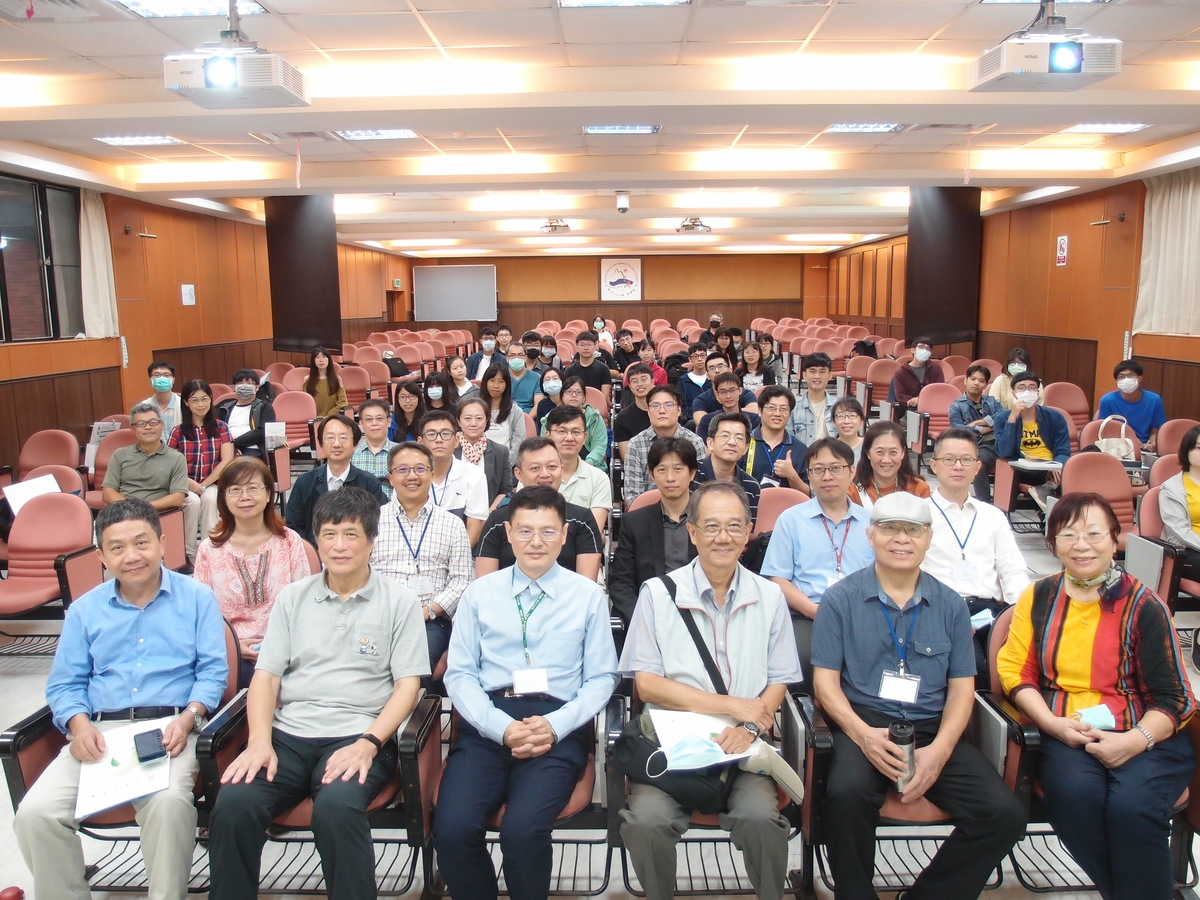
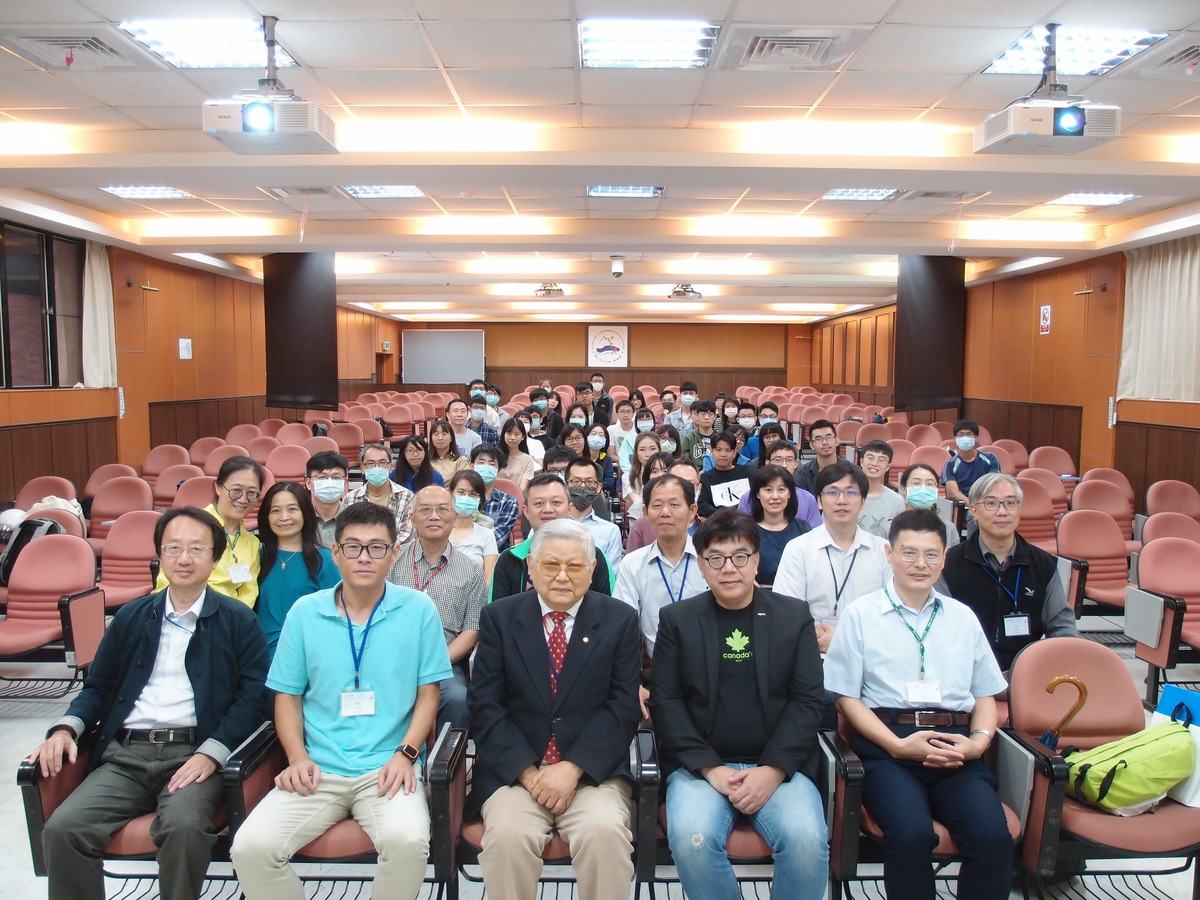
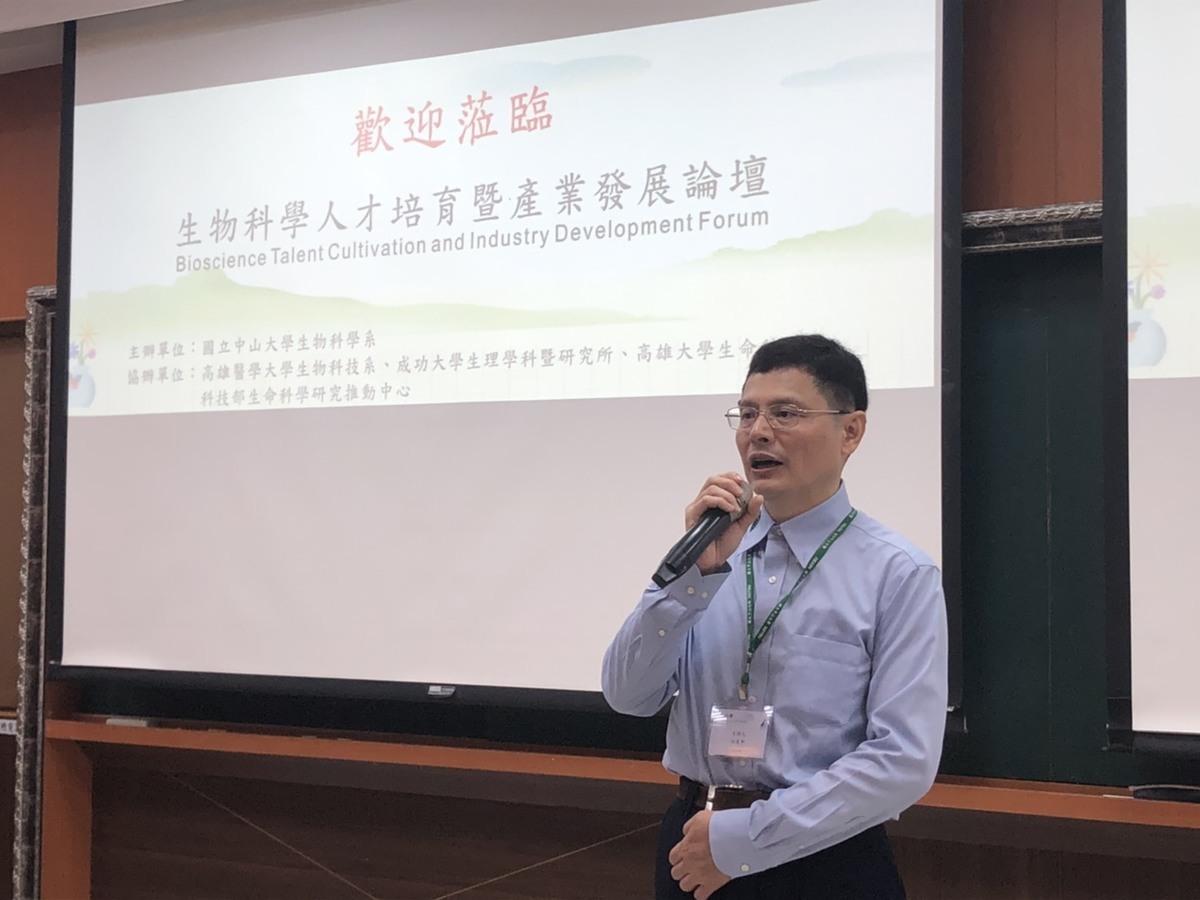
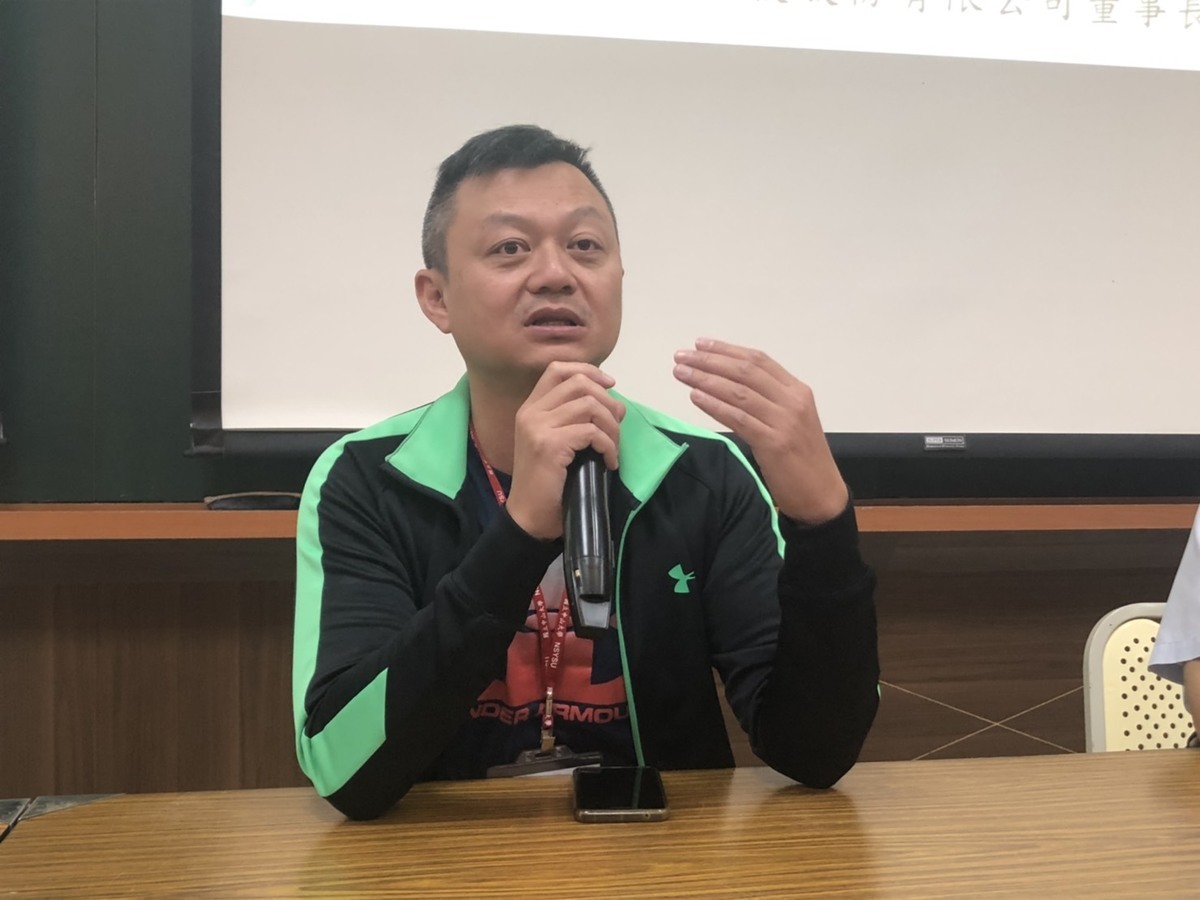
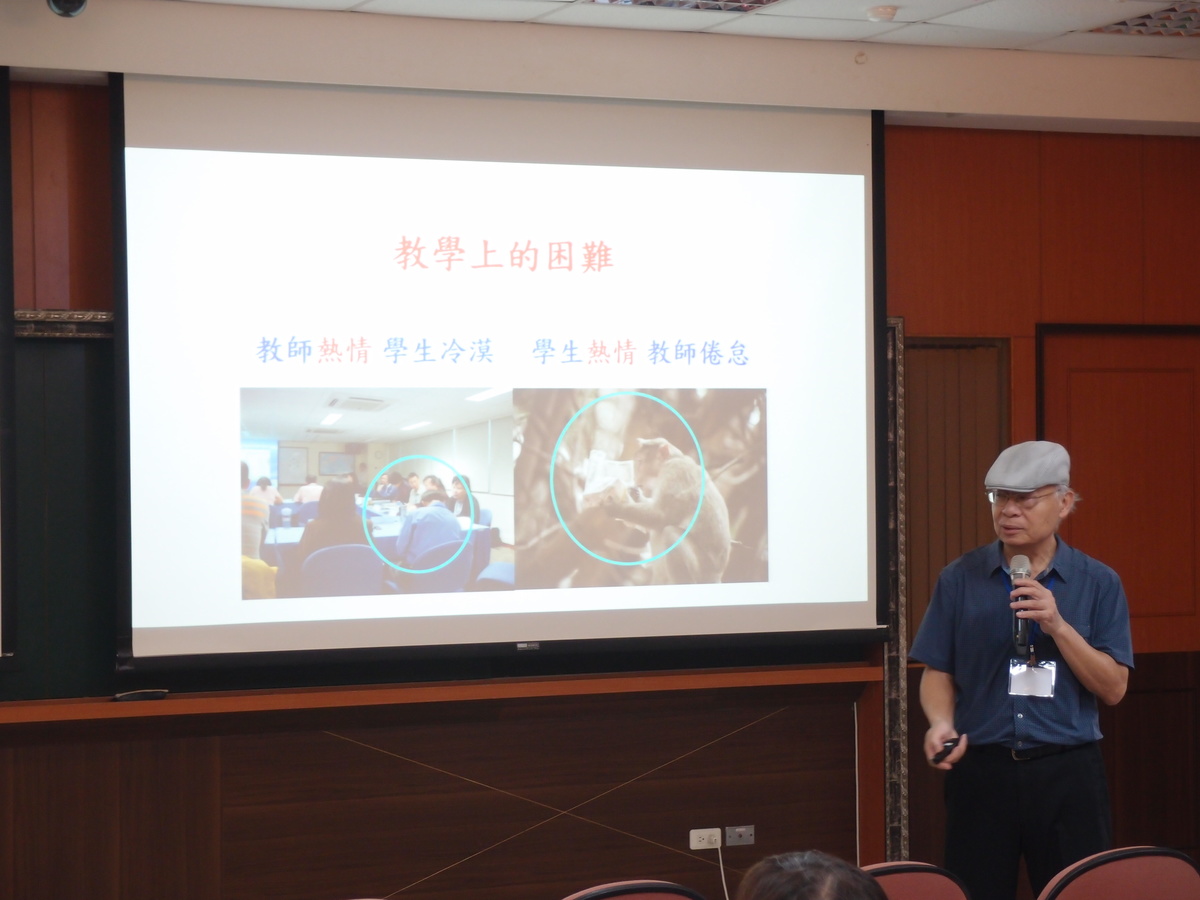
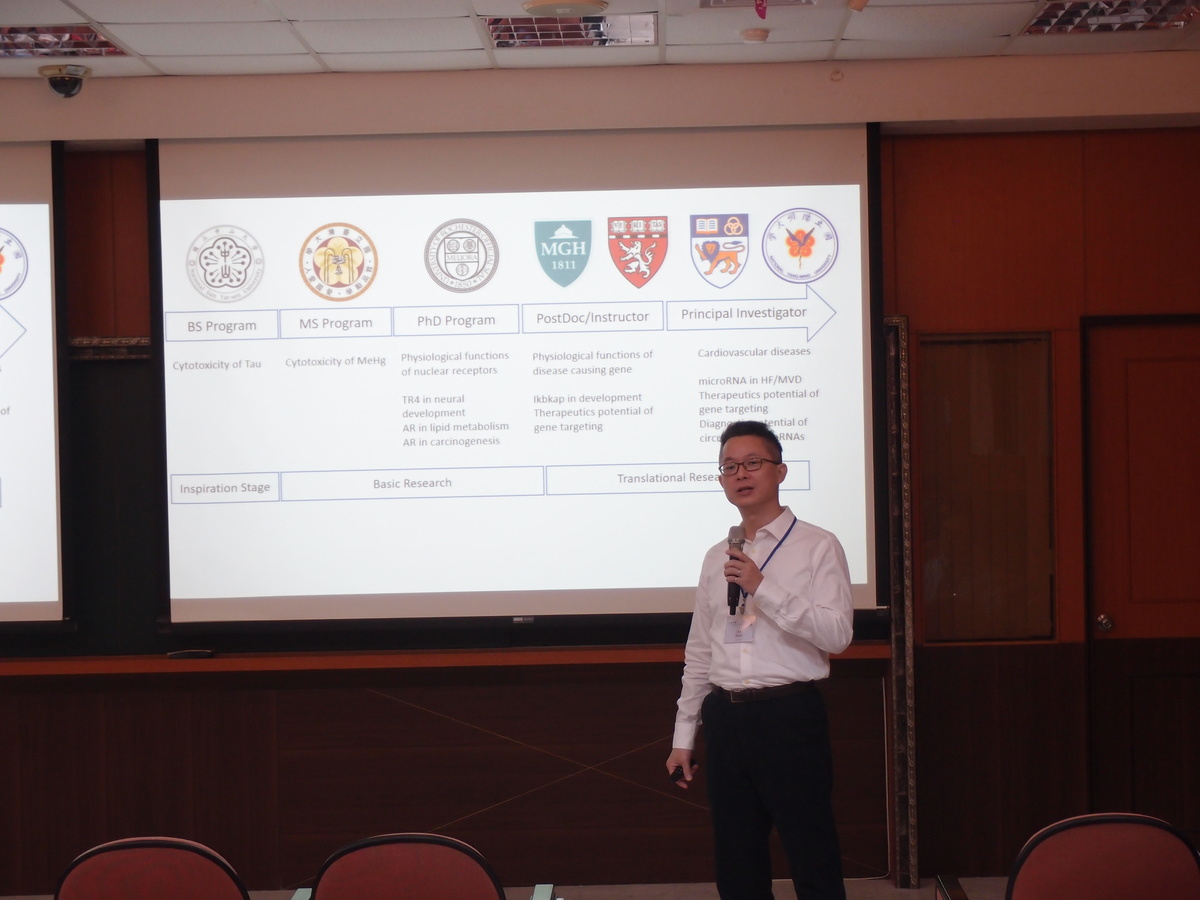
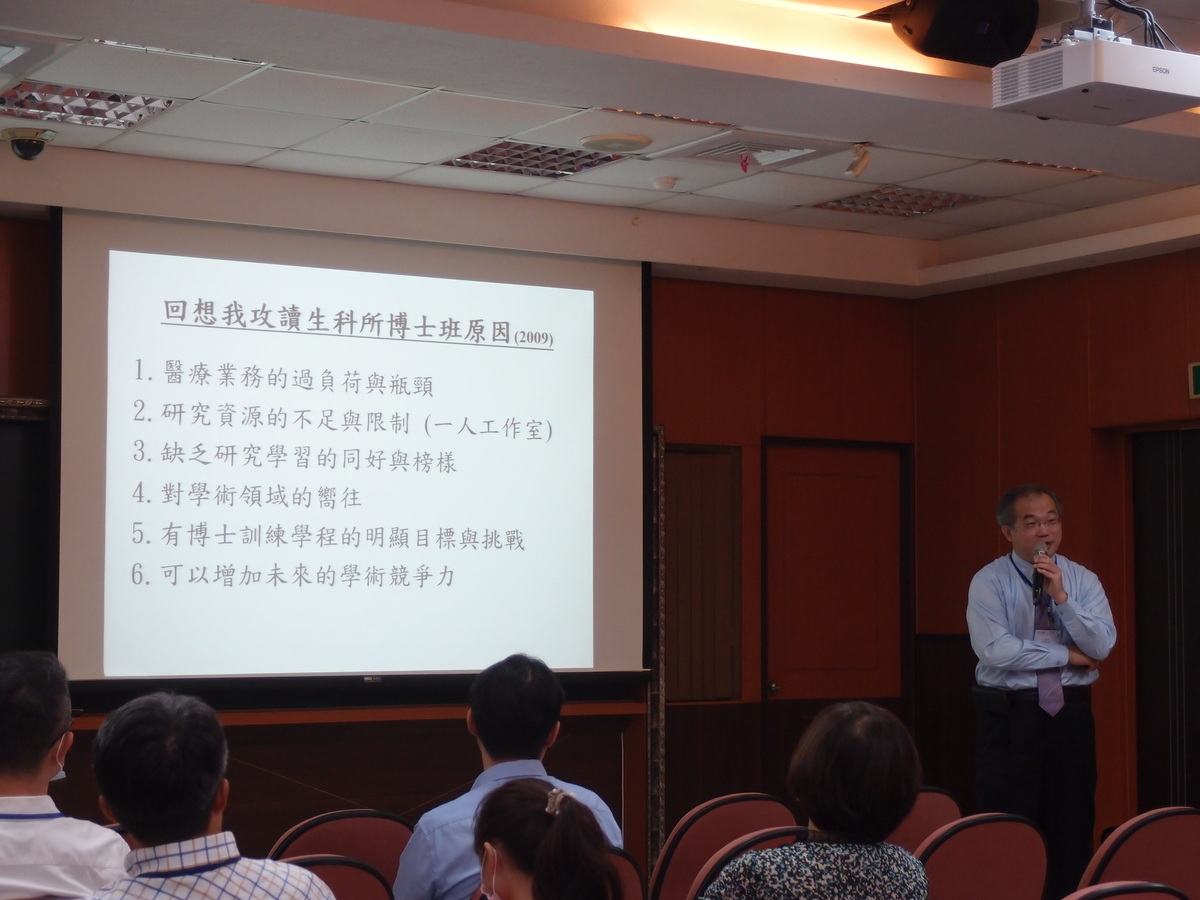
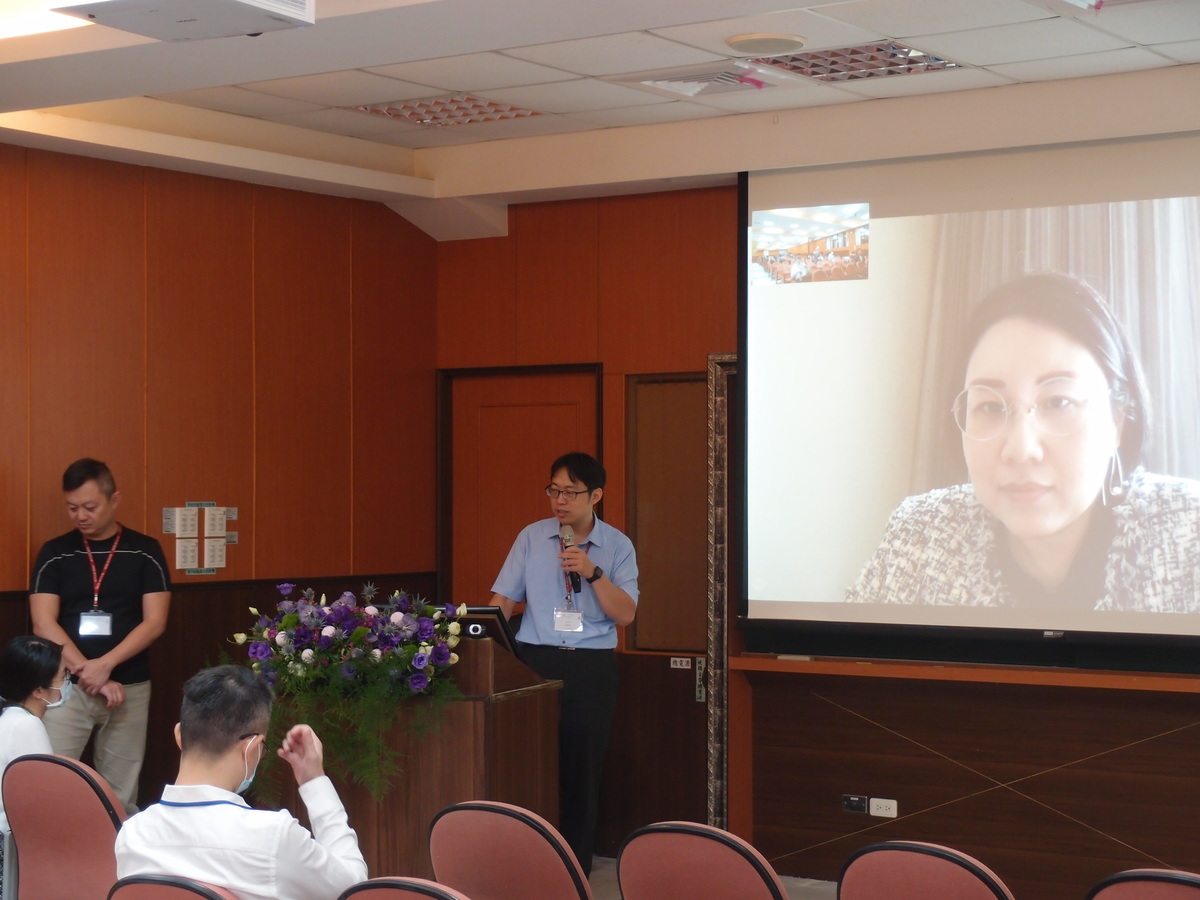
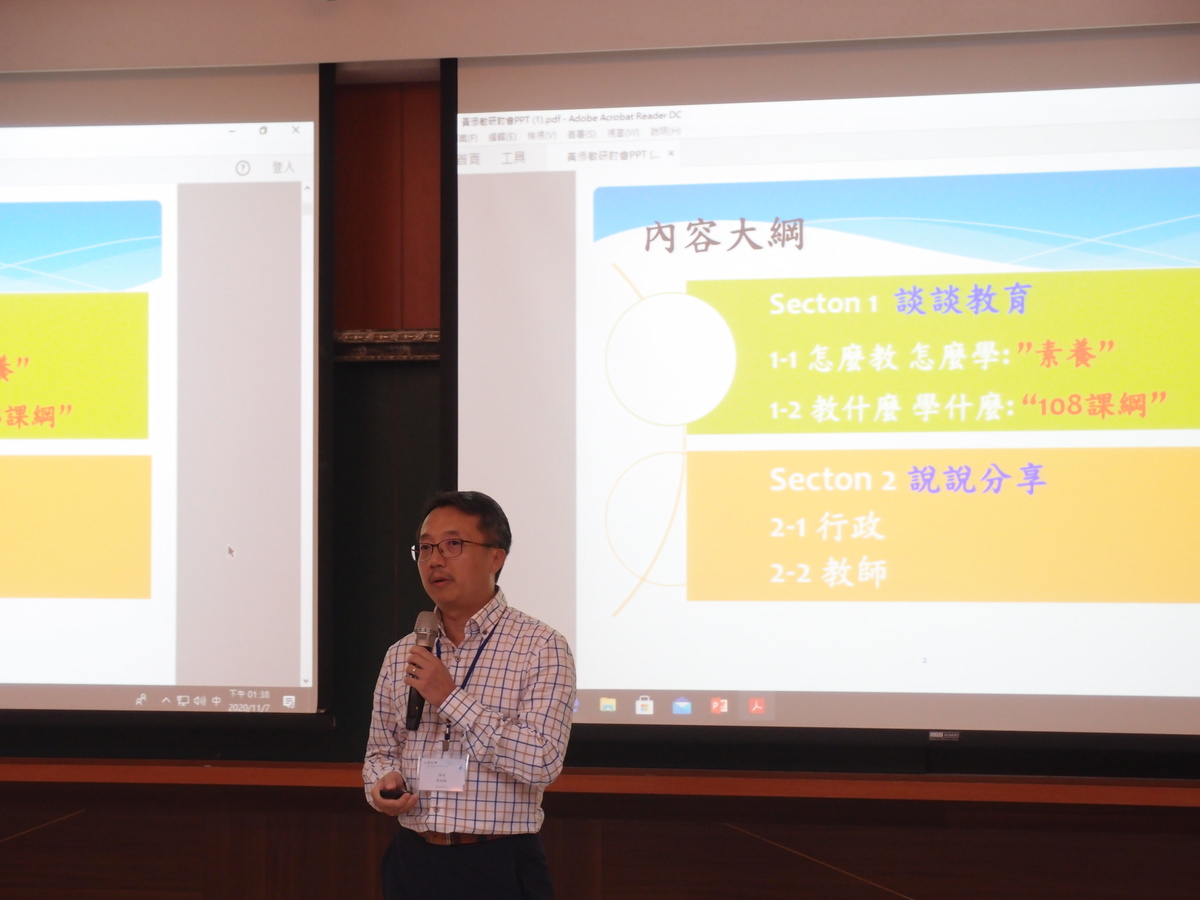
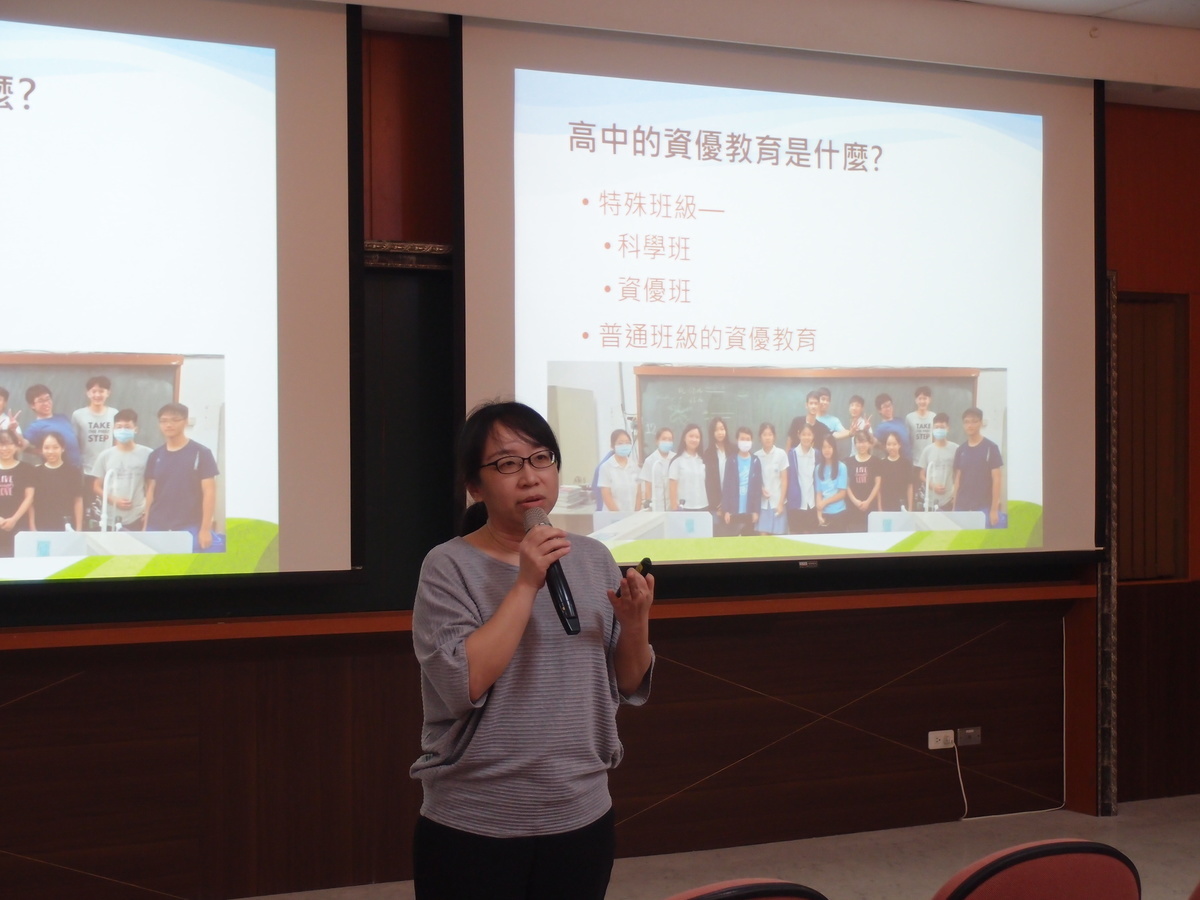
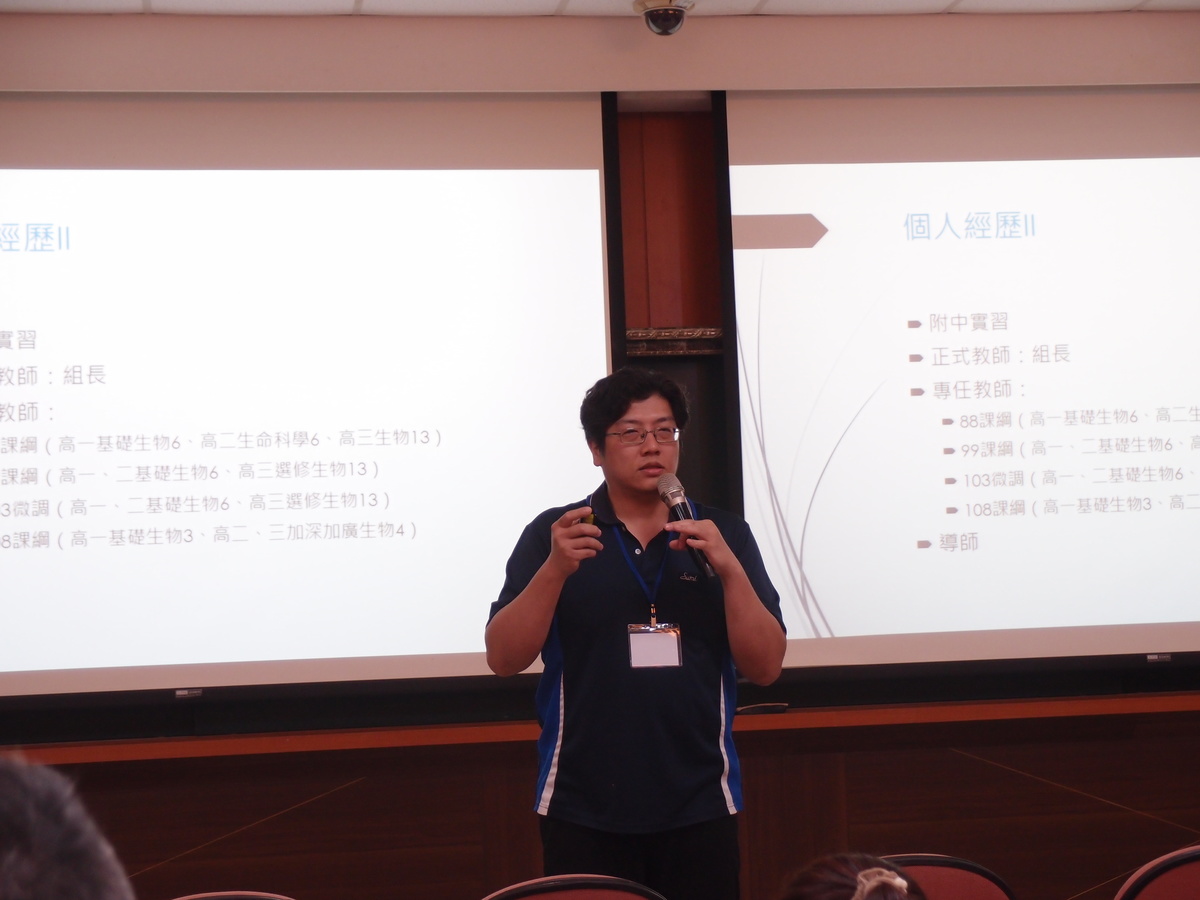
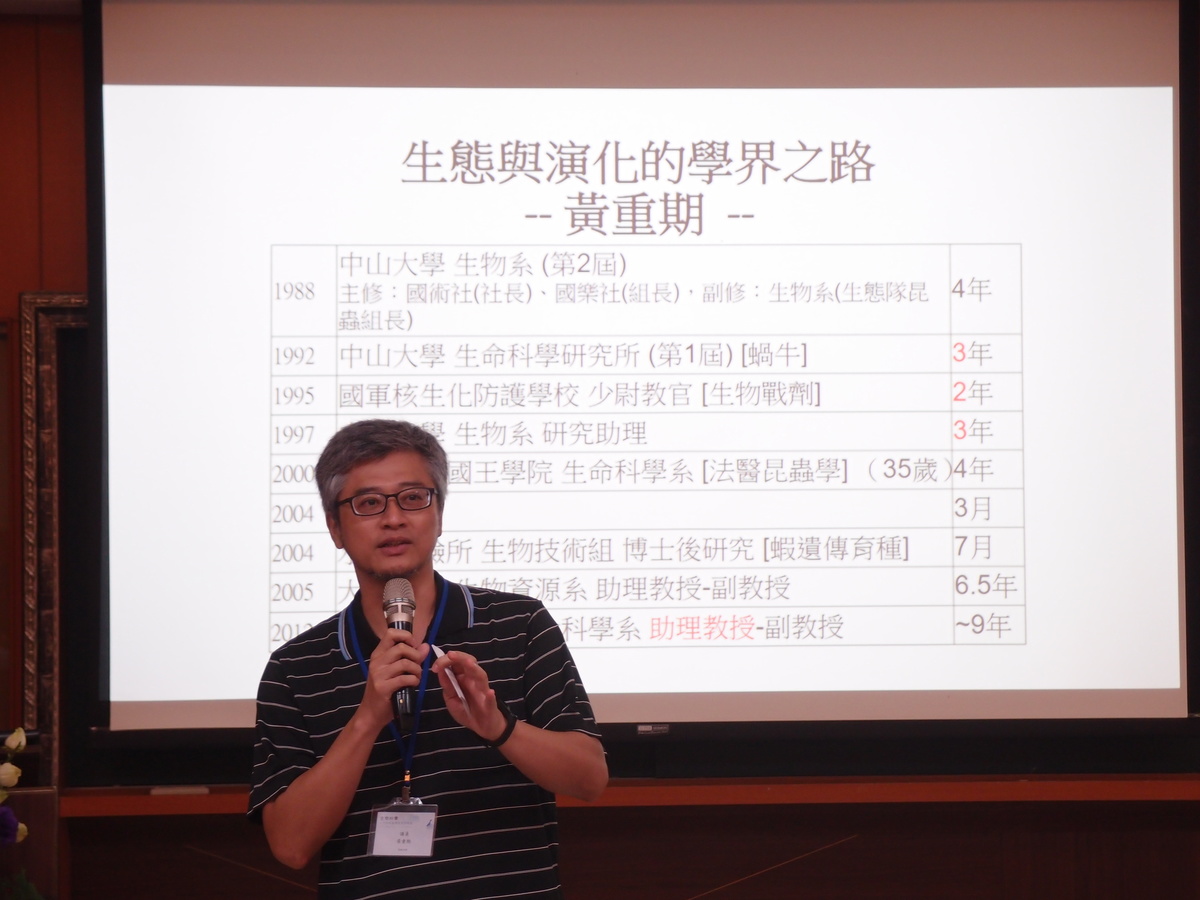
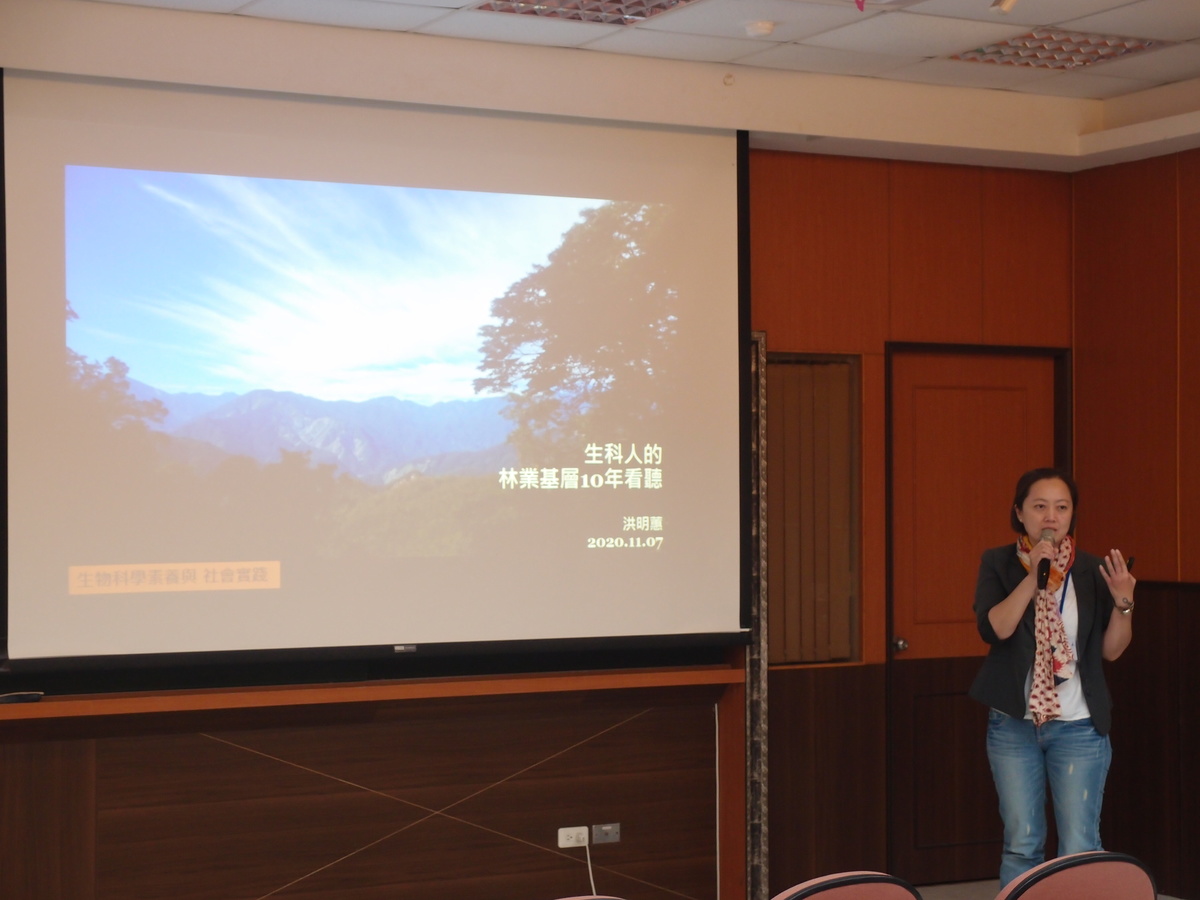
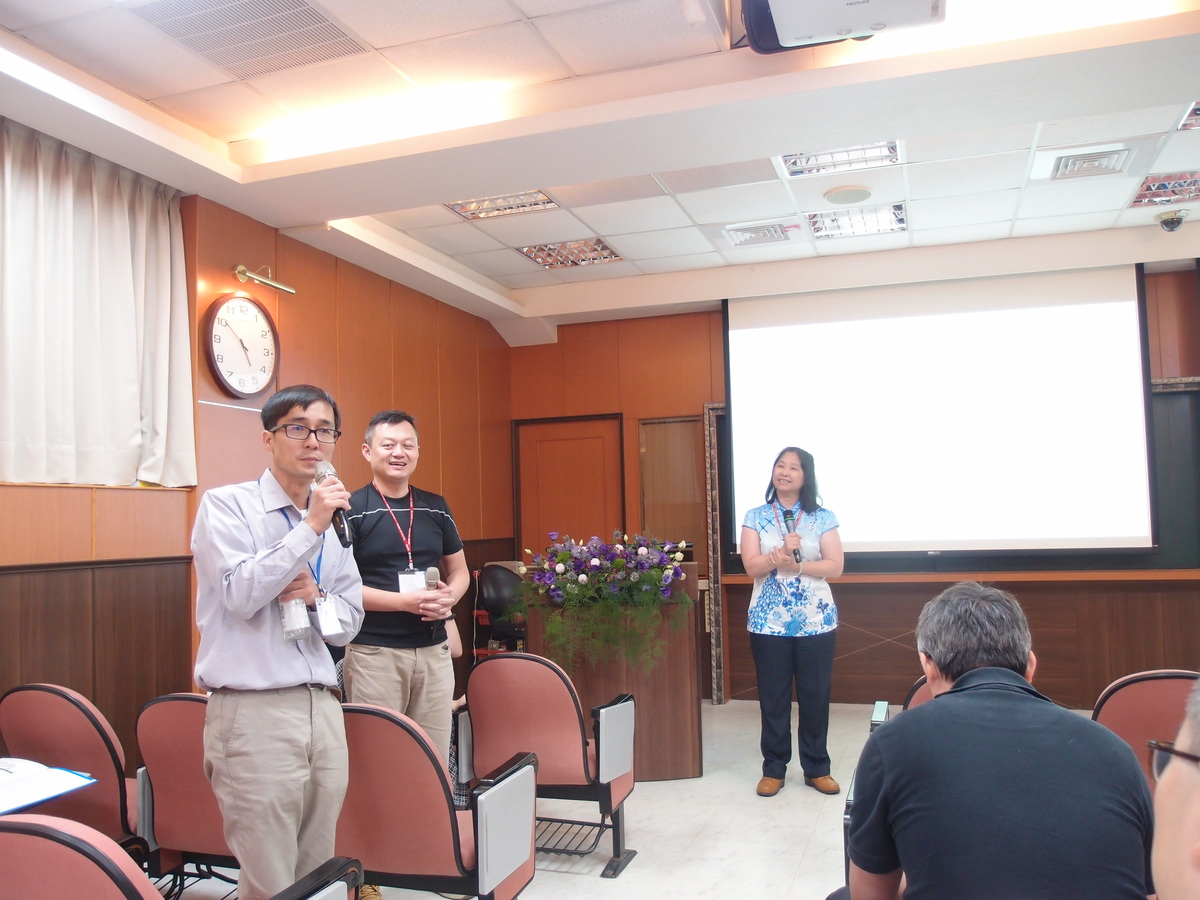
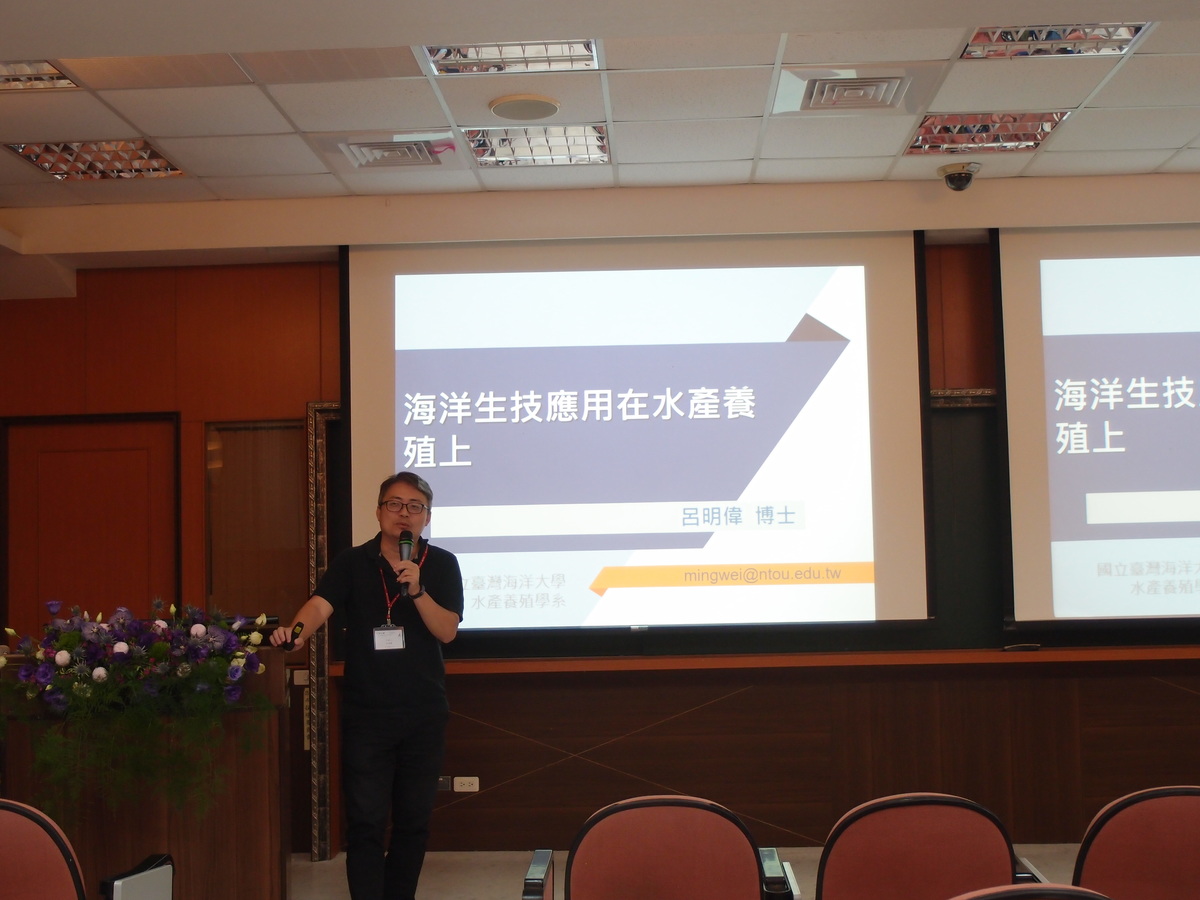
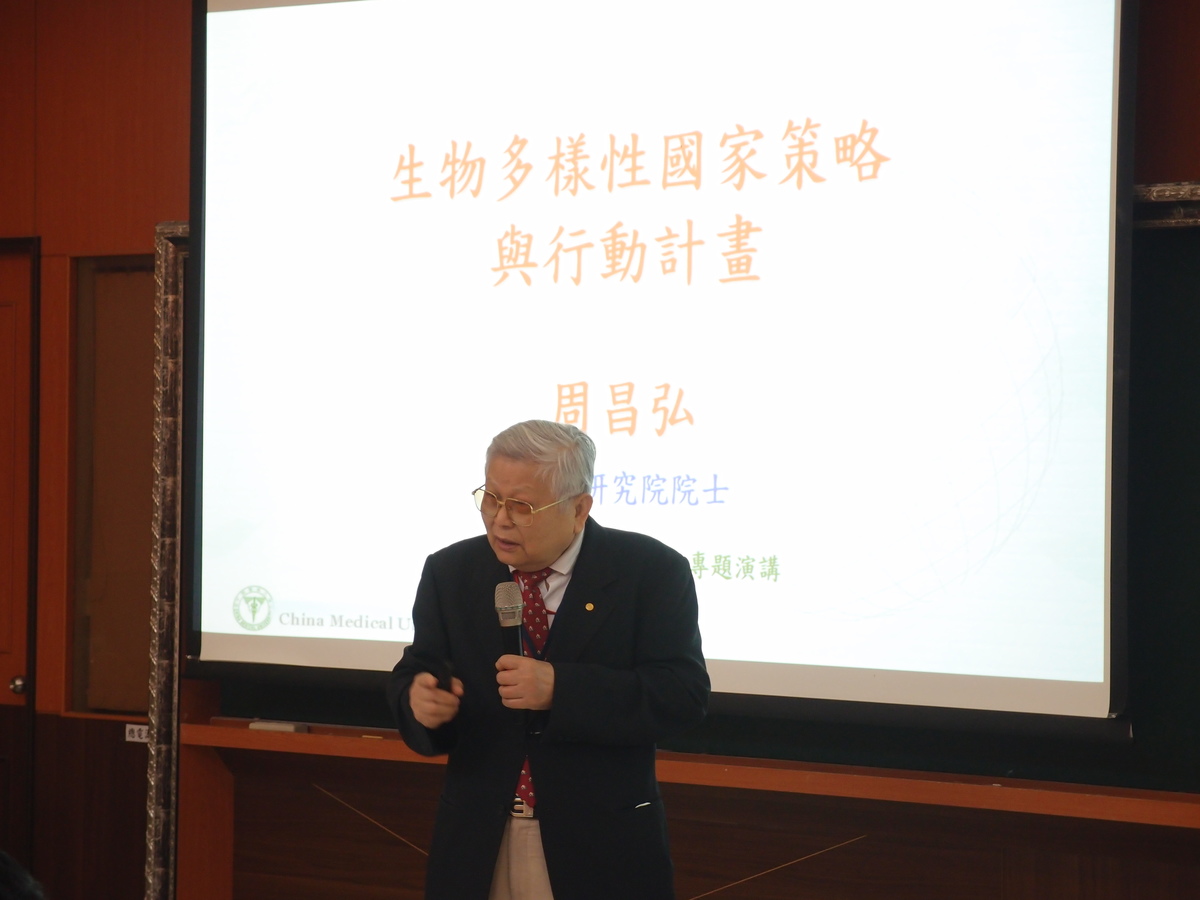
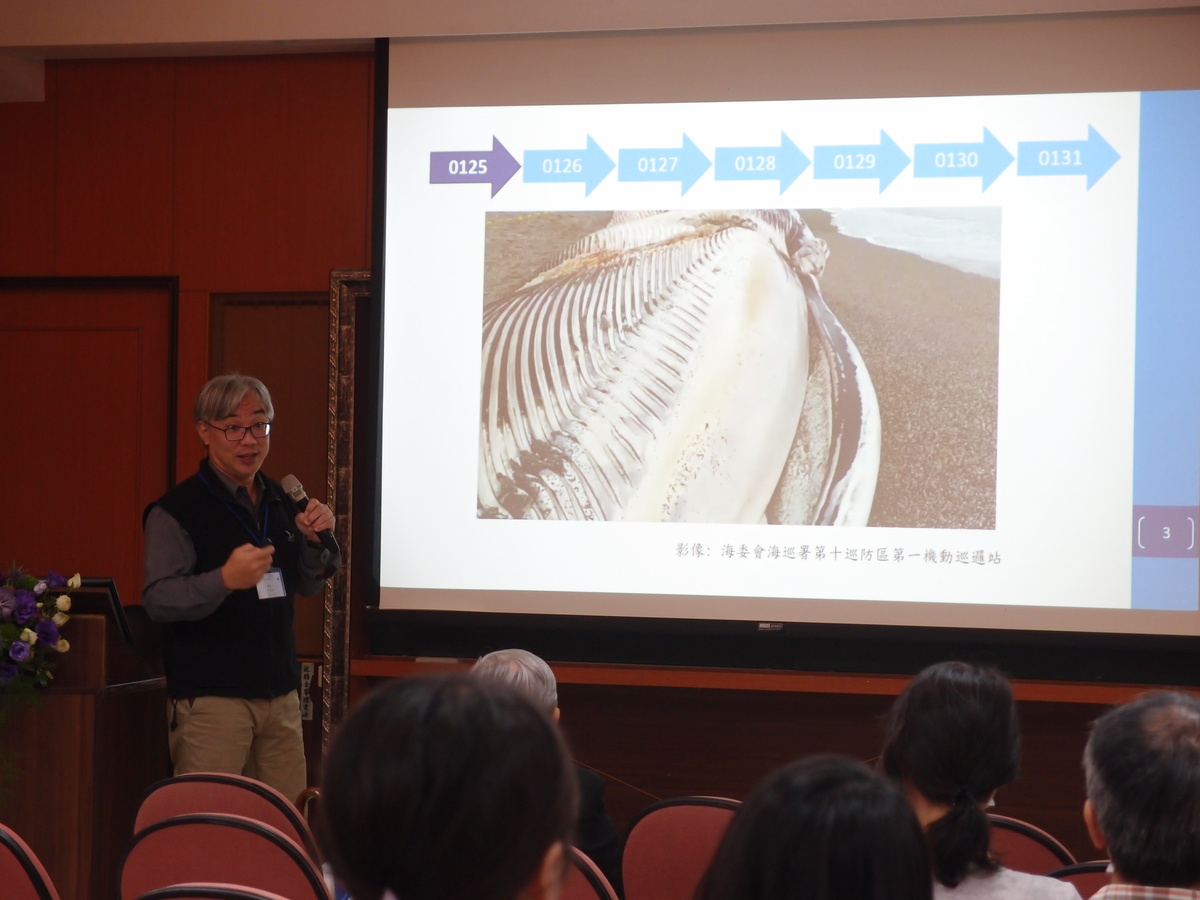
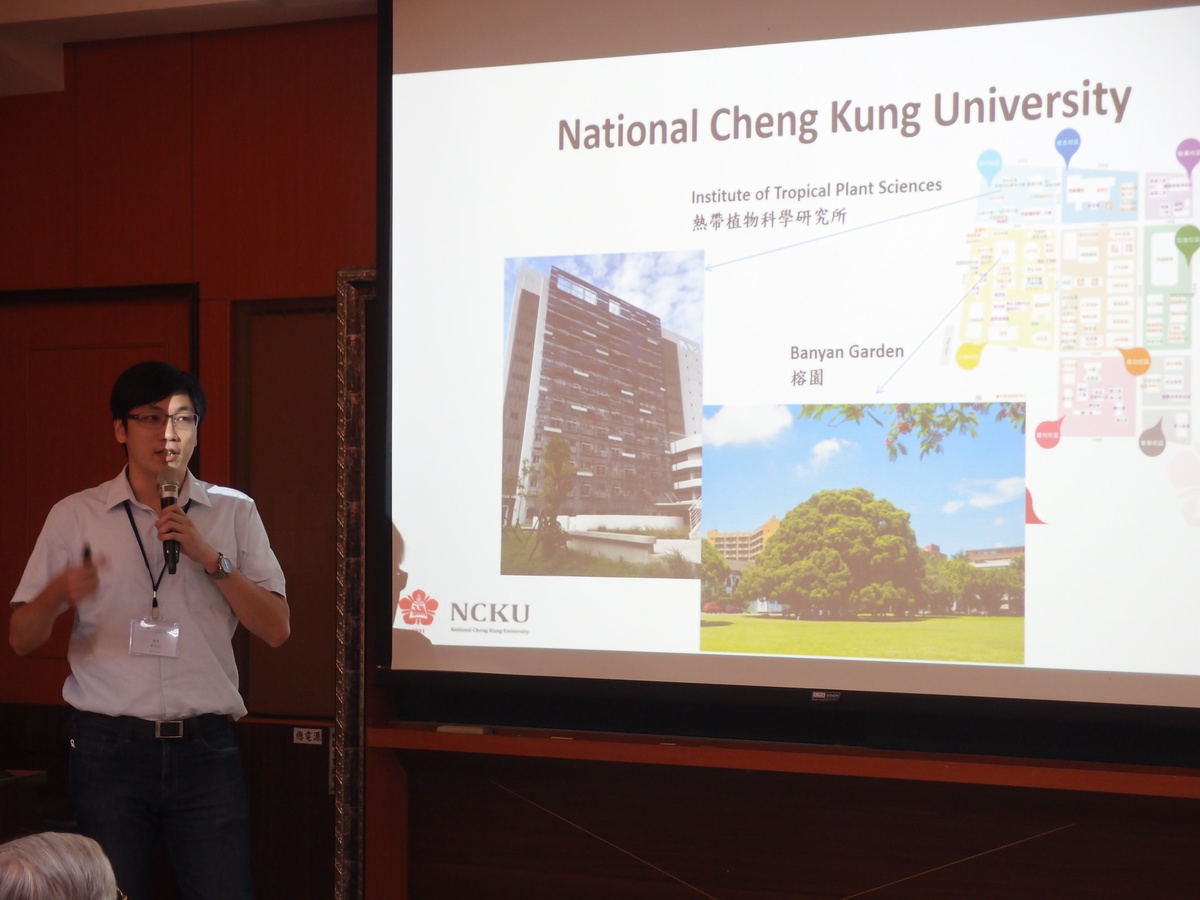
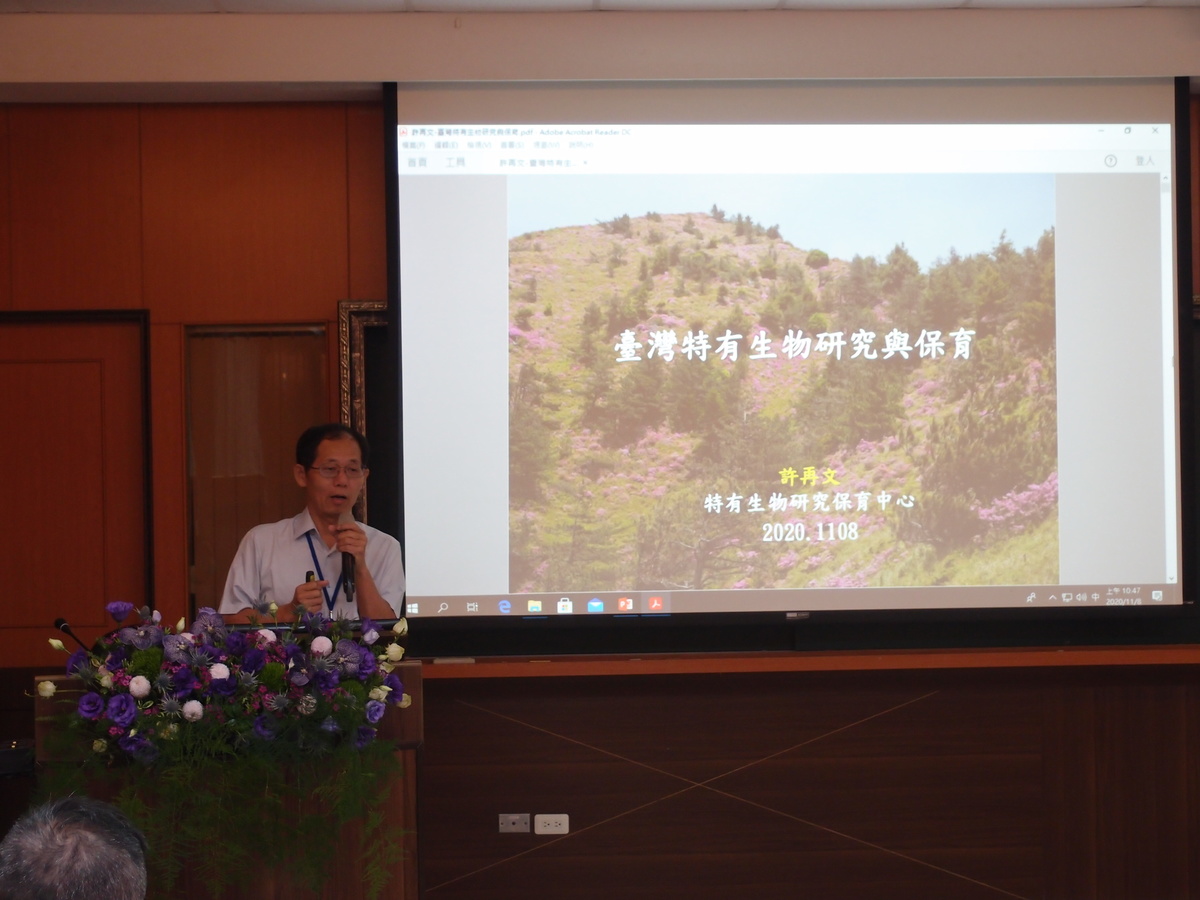
(Report by student journalist) In November, the Department of Biological Sciences (DBS) at National Sun Yat-sen University (NSYSU) held the BioScience Talent Cultivation and Industry Development Forum 2020. Ming-Jen Chen, President of the Alumni Association of NSYSU DBS, which organized the event, said that the majority of the speakers of the Forum were DBS alumni, who returned to the University to celebrate its 40th anniversary. The alumni shared a variety of topics ranging from academic research, industry development, to secondary school education; what’s more, the participants engaged in discussions on various fields, debating on how medical research and biological sciences can be combined, and hoping to promote cross-disciplinary cooperation.
Dean of Central Taiwan Theological Seminary David Chao opened the Forum with a keynote speech on the history of the education of professionals in biological sciences in Taiwan. Chao, who helped many Taiwanese contestants prepare for the International Biology Olympiad, emphasized that such major international competitions let him get acquainted with international trends in biology education, identify the strengths and weaknesses of Taiwan’s education and adjust the biology curriculum for secondary school students. He said that the number of exam questions requiring memorization is diminishing, which proves that the Ministry of Education is considering students’ needs and remodeling curricula and exams.
During the panel on “Biological sciences and the industry development: global development trends in biomedical research”, Assistant Professor Yei-Tsung Chen of the Department of Life Sciences and the Institute of Genome Sciences at National Yang-Ming University shared his learning experience after graduating from NSYSU DBS; many people offered him help during his education, however, to be helped, one needs to take the initiative and ask questions, instead of passively waiting for opportunities, he said. The head of the Cardiology Department at Kaohsiung Municipal United Hospital Chi-Cheng Lai pointed out that biological sciences are one of the fundamentals of medicine, and that the modern medical environment is in need of biological sciences professionals; he expressed his hope that more students will choose a career in the medical industry, solve clinical medicine problems, and improve the healthcare. Researcher and Assistant Dean of the Office of International Affairs, Faculty of Medicine Ramathibodi Hospital, Mahidol University, Meng-Shin Hsiao presented the current achievements in genomics research on ovarian cancer genomics in Thailand. At present, Thailand is establishing a database for labeling proteins genes in ovarian cancer so as to find the most suitable pharmacotheraphy for Thai patients. The host of the Forum, Director of the Department of Biotechnology at Kaohsiung Medical University (KMU) Charles Chien-Chih Chiu responded saying that the establishment of the DNA data bank incurs a large cost and suggested that Taiwan could help by sharing the DNA data bank of National Health Insurance for Thai researchers to jointly work on cancer treatment.
During the panel on “Challenges to the new curriculum in 2019: practical education in biological sciences in secondary schools”, the former Principal of Private Chien Tai Senior High School Tien-Min Huang said that the core focal points of the 2019 curriculum – students’ learning process and self-cultivation are to change the traditional approach to teaching. Biology teacher of the Affiliated Senior High School of National Taiwan Normal University (NTNU) Yu-Jing Su talked about how laboratory classes at NSYSU helped her guide pupils through their projects, especially with the new curriculum requiring students to have achievements in competitions. Another teacher of the same high school, Yin-Ting Luo, said that during his laboratory classes at DBS, he learned about different stages in research and decided to apply this knowledge in high school students’ projects, and how to teach them to be patient and pay attention to details in research.
During the panel on “Competence in biological sciences and social practice”, Associate Professor Chung-Chi Hwang of the Department of Life Science at the National University of Kaohsiung advised students who want to continue their academic career to nurture their interpersonal skills so as to be more competitive in the academia. Ming-Hui Hung of the Luodong Forest District Office, Forestry Bureau, Council of Agriculture, Executive Yuan, shared his experience working in public service. Her tasks included the inspection of the natural woodland, patrolling the forest and hiking trails in the protected natural area, and protection of the high-risk forest area. During her work, she could admire the natural beauty of mountain forests in the whole Taiwan. I-Han Chen, an environmentally-friendly rice grower, explained how to apply scientific methods in rice growing; he is currently doing research for the sixth year to find the best method to capture Ampullariidae (apple snails) which destroy crops. He persists in using eco-friendly techniques to deter pest from rice crops.
In the panel on “Biological sciences and industry development: trends in the biotechnological industry, Professor Ming-Wei Lu of the Department of Aquaculture, National Taiwan Ocean University (NTOU) shared his personal experience on bridging academia with the industry. He emphasized that the research results should match the industry needs. He provided an example: biotechnology inventions licenses sold by academia to the industry rarely surpass 1 mln NTD, because the technology developed still needs to be adjusted to the needs of the industry and this implicates many obstacles to overcome.
The second day of the Forum was opened with a speech by the Fellow of Academia Sinica and researcher of telecommunication Chang-Hung Chou on the national policy on biodiversity and the related action plan. Professor Chou said that biodiversity is a term that refers to the diversity of genes, organisms, and ecosystems and that the national policy on biodiversity and the related action plan should consider the human, economic, and life factors, and use different genes to develop the inheritance of several characteristics and functions, and then, create the economic value. Thus, genomic research brooks no delay.
Finally, during the panel on “Cultivation of professionals in biodiversity and conservation”, Associate Professor Hao-Wen Wang of the Department of Life Sciences at National Cheng Kung University (NCKU) gave a speech on cetaceans conservation in Taiwan, and mentioned the stranding of a blue whale off the coast of Taitung earlier this year – the first case of a blue whale stranding in Taiwan. Although Wang was celebrating Chinese New Year with his family, he had to set off to the site to study the carcass as soon as he got a notification from the Coast Guard Administration. He found out that the rope tied around the blue whale’s neck caused the animal’s death, as it was unable to ingest food. Assistant Professor Chao-Li Huang of the Institute of Tropical Plant Sciences and Microbiology at NCKU said that the agriculture in Taiwan utilizes large quantities of chemical fertilizers and pesticides, harming the ecosystem and altering the environment, and thus, translational agriculture and beneficial soil microorganisms are the keys to environmental sustainability. Healthy rhizosphere microorganisms can reduce the usage of chemical fertilizers and pesticides, attaining agricultural development, ecological health, people’s wellness, and perfect harmony. Associate Researcher of the Endemic Species Research Institute, Council of Agriculture, Executive Yuan, Tsai-Wen Hsu presented the results of the establishment of a corridor in Central Mountain Range in Taiwan. Because 26.2% of the plant species in Taiwan are endemic, and this percentage increases with the height above sea level, thus, the establishment of an ecological corridor is crucial for species conservation. Kuo-Hsiang Hung, the Director of the Graduate Institute of Bioresources at the College of Agriculture, National Pingtung University of Science and Technology (NPUST), said that the conflict between economic development and ecological conservation can be solved by applying biology, ecology, and cross-disciplinary knowledge, to restore the damaged environment, establish a model for the sustainable development and use of bioresources, and pacify the conflict between economy and environmental protection.
The BioScience Talent Cultivation and Industry Development Forum 2020 also invited the Director of DBS at NSYSU – Distinguished Professor Yu-Chung Chiang to give a speech, and the following panel chairpersons: Chairperson of the Department of Biotechnology at KMU Charles Chien-Chih Chiu, Ming-Jen Chen – head of the Alumni Association of NSYSU DBS, Director of the Department of Physiology of NCKU Alice Y. W. Chang, Professor Ming-Wei Lu of the Department of Aquaculture at NTOU, and Distinguished Professor Tzen-Yuh Chiang of the Department of Life Sciences at NCKU. The participants of the panel discussion included Director of DBS at NSYSU – Distinguished Professor Yu-Chung Chiang, Professor Hao-Jen Huang of the Department of Life Sciences at NCKU, and Ming-Jen Chen.
(Edited by Public Affairs Division)
Dean of Central Taiwan Theological Seminary David Chao opened the Forum with a keynote speech on the history of the education of professionals in biological sciences in Taiwan. Chao, who helped many Taiwanese contestants prepare for the International Biology Olympiad, emphasized that such major international competitions let him get acquainted with international trends in biology education, identify the strengths and weaknesses of Taiwan’s education and adjust the biology curriculum for secondary school students. He said that the number of exam questions requiring memorization is diminishing, which proves that the Ministry of Education is considering students’ needs and remodeling curricula and exams.
During the panel on “Biological sciences and the industry development: global development trends in biomedical research”, Assistant Professor Yei-Tsung Chen of the Department of Life Sciences and the Institute of Genome Sciences at National Yang-Ming University shared his learning experience after graduating from NSYSU DBS; many people offered him help during his education, however, to be helped, one needs to take the initiative and ask questions, instead of passively waiting for opportunities, he said. The head of the Cardiology Department at Kaohsiung Municipal United Hospital Chi-Cheng Lai pointed out that biological sciences are one of the fundamentals of medicine, and that the modern medical environment is in need of biological sciences professionals; he expressed his hope that more students will choose a career in the medical industry, solve clinical medicine problems, and improve the healthcare. Researcher and Assistant Dean of the Office of International Affairs, Faculty of Medicine Ramathibodi Hospital, Mahidol University, Meng-Shin Hsiao presented the current achievements in genomics research on ovarian cancer genomics in Thailand. At present, Thailand is establishing a database for labeling proteins genes in ovarian cancer so as to find the most suitable pharmacotheraphy for Thai patients. The host of the Forum, Director of the Department of Biotechnology at Kaohsiung Medical University (KMU) Charles Chien-Chih Chiu responded saying that the establishment of the DNA data bank incurs a large cost and suggested that Taiwan could help by sharing the DNA data bank of National Health Insurance for Thai researchers to jointly work on cancer treatment.
During the panel on “Challenges to the new curriculum in 2019: practical education in biological sciences in secondary schools”, the former Principal of Private Chien Tai Senior High School Tien-Min Huang said that the core focal points of the 2019 curriculum – students’ learning process and self-cultivation are to change the traditional approach to teaching. Biology teacher of the Affiliated Senior High School of National Taiwan Normal University (NTNU) Yu-Jing Su talked about how laboratory classes at NSYSU helped her guide pupils through their projects, especially with the new curriculum requiring students to have achievements in competitions. Another teacher of the same high school, Yin-Ting Luo, said that during his laboratory classes at DBS, he learned about different stages in research and decided to apply this knowledge in high school students’ projects, and how to teach them to be patient and pay attention to details in research.
During the panel on “Competence in biological sciences and social practice”, Associate Professor Chung-Chi Hwang of the Department of Life Science at the National University of Kaohsiung advised students who want to continue their academic career to nurture their interpersonal skills so as to be more competitive in the academia. Ming-Hui Hung of the Luodong Forest District Office, Forestry Bureau, Council of Agriculture, Executive Yuan, shared his experience working in public service. Her tasks included the inspection of the natural woodland, patrolling the forest and hiking trails in the protected natural area, and protection of the high-risk forest area. During her work, she could admire the natural beauty of mountain forests in the whole Taiwan. I-Han Chen, an environmentally-friendly rice grower, explained how to apply scientific methods in rice growing; he is currently doing research for the sixth year to find the best method to capture Ampullariidae (apple snails) which destroy crops. He persists in using eco-friendly techniques to deter pest from rice crops.
In the panel on “Biological sciences and industry development: trends in the biotechnological industry, Professor Ming-Wei Lu of the Department of Aquaculture, National Taiwan Ocean University (NTOU) shared his personal experience on bridging academia with the industry. He emphasized that the research results should match the industry needs. He provided an example: biotechnology inventions licenses sold by academia to the industry rarely surpass 1 mln NTD, because the technology developed still needs to be adjusted to the needs of the industry and this implicates many obstacles to overcome.
The second day of the Forum was opened with a speech by the Fellow of Academia Sinica and researcher of telecommunication Chang-Hung Chou on the national policy on biodiversity and the related action plan. Professor Chou said that biodiversity is a term that refers to the diversity of genes, organisms, and ecosystems and that the national policy on biodiversity and the related action plan should consider the human, economic, and life factors, and use different genes to develop the inheritance of several characteristics and functions, and then, create the economic value. Thus, genomic research brooks no delay.
Finally, during the panel on “Cultivation of professionals in biodiversity and conservation”, Associate Professor Hao-Wen Wang of the Department of Life Sciences at National Cheng Kung University (NCKU) gave a speech on cetaceans conservation in Taiwan, and mentioned the stranding of a blue whale off the coast of Taitung earlier this year – the first case of a blue whale stranding in Taiwan. Although Wang was celebrating Chinese New Year with his family, he had to set off to the site to study the carcass as soon as he got a notification from the Coast Guard Administration. He found out that the rope tied around the blue whale’s neck caused the animal’s death, as it was unable to ingest food. Assistant Professor Chao-Li Huang of the Institute of Tropical Plant Sciences and Microbiology at NCKU said that the agriculture in Taiwan utilizes large quantities of chemical fertilizers and pesticides, harming the ecosystem and altering the environment, and thus, translational agriculture and beneficial soil microorganisms are the keys to environmental sustainability. Healthy rhizosphere microorganisms can reduce the usage of chemical fertilizers and pesticides, attaining agricultural development, ecological health, people’s wellness, and perfect harmony. Associate Researcher of the Endemic Species Research Institute, Council of Agriculture, Executive Yuan, Tsai-Wen Hsu presented the results of the establishment of a corridor in Central Mountain Range in Taiwan. Because 26.2% of the plant species in Taiwan are endemic, and this percentage increases with the height above sea level, thus, the establishment of an ecological corridor is crucial for species conservation. Kuo-Hsiang Hung, the Director of the Graduate Institute of Bioresources at the College of Agriculture, National Pingtung University of Science and Technology (NPUST), said that the conflict between economic development and ecological conservation can be solved by applying biology, ecology, and cross-disciplinary knowledge, to restore the damaged environment, establish a model for the sustainable development and use of bioresources, and pacify the conflict between economy and environmental protection.
The BioScience Talent Cultivation and Industry Development Forum 2020 also invited the Director of DBS at NSYSU – Distinguished Professor Yu-Chung Chiang to give a speech, and the following panel chairpersons: Chairperson of the Department of Biotechnology at KMU Charles Chien-Chih Chiu, Ming-Jen Chen – head of the Alumni Association of NSYSU DBS, Director of the Department of Physiology of NCKU Alice Y. W. Chang, Professor Ming-Wei Lu of the Department of Aquaculture at NTOU, and Distinguished Professor Tzen-Yuh Chiang of the Department of Life Sciences at NCKU. The participants of the panel discussion included Director of DBS at NSYSU – Distinguished Professor Yu-Chung Chiang, Professor Hao-Jen Huang of the Department of Life Sciences at NCKU, and Ming-Jen Chen.
(Edited by Public Affairs Division)
Click Num:
Share
